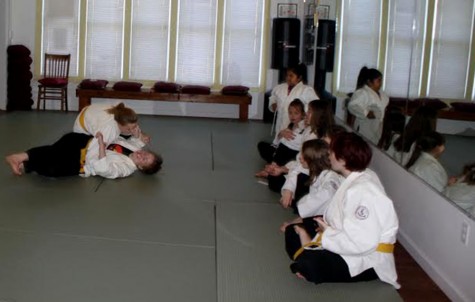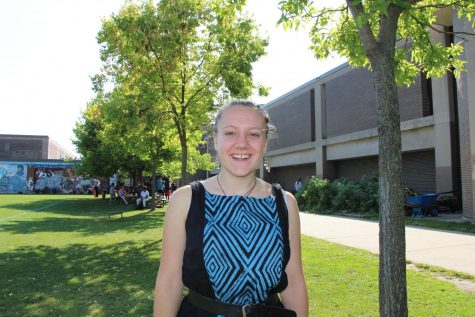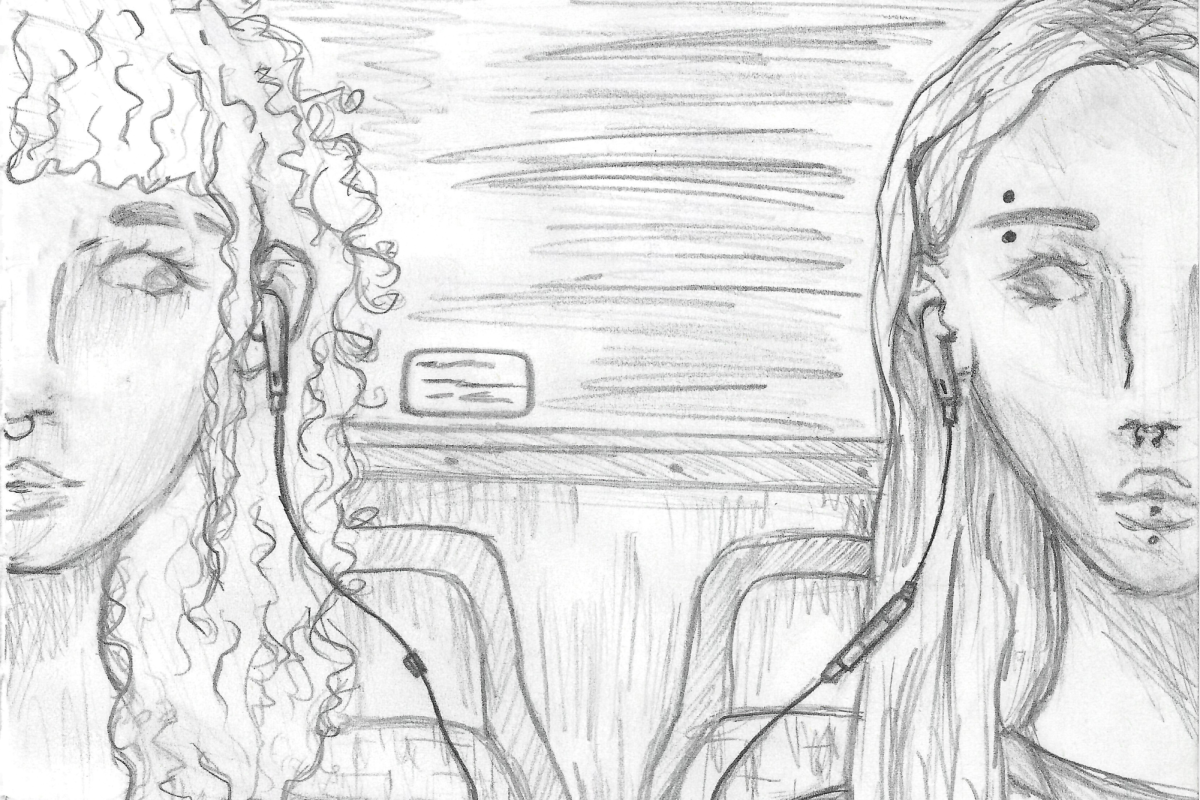Girls at South kick back in self-defense classes
March 7, 2016
“I thought it would it would make me feel more comfortable being out at night alone,” said sophomore Caroline Haarman explaining why she first took a self defense class. Almost every woman and girl has her own set of horror stories: near brushes with sexual violence, experiences with continual harassment, or even sexual assault itself. Violence and specifically sexual violence against women has always been prevalent in history. This is something that affects both cisgender and transgender women as well as feminine presenting people.
How to prevent and react to this is a question many girls ask themselves. Although it’s important not to place the responsibility to prevent violence on the victims, it is practical to prepare. Several South students have sought out self defense classes or even become well-versed in martial arts to protect themselves.
Haarman decided to take a self defense class at Krav Maga Minneapolis at the encouragement of her mom who also took the class with her. The class focused on the fighting style “Krav Maga” developed by Israeli military forces. It focuses on specific scenarios, such as being attacked while you are on your phone or being approached from behind and having a knife put to your throat. Haarman found her class to be somewhat intense, sometimes leaving her with bruises. Still, that did not curb her enthusiasm.“It’s just a positive experience for people to have, especially if you find the right place and the right teacher.”

For some girls at South, martial arts is more than just some class that they took with their mom. It’s a regular part of their life. Senior Nahal Javan has taken lessons at the Westbank Karate Club for the last 13 years. Javan finds the lessons empowering in their focus on individual strength. “Since I started when I was six, it definitely increased my ability to have power and individuality and be more independent,” Javan explained. “It’s a lot of yourself and what you’re able to do.”
Another influential part of the experience is the strong community. “You’ve been with the people for the last 10,15 years and you know how they talk…[and] how they react to certain things” she said. “[It’s a] very friendly environment but a very intense environment as well.”
Sophomore Ingrid Zoll found a much different style of teaching, when she took a class at Five Elements of Martial Arts (FEMA) in 8th grade, also at the encouragement of her mom. “At that point in my life I was already getting cat-called walking down the street,” Zoll said. “She wanted to make sure I know how to be aware of my surroundings and…know how to handle myself.”
The self-defense class at FEMA focused on the “Five Fingers”: Mind, Voice, Escape, Fight, and Tell which prioritized “knowing how to get out of those situations before they escalate,” Zoll said. The class advertises as open to “women, girls, trans*folks, boys, and vulnerable men” ages 13 and older.
The class’ goal is not to teach women how to fight but to help them utilise skills they already have, explained Kore Grate the executive director and head instructor at FEMA. “We’re not saying to women ‘Ok, dump everything you know, and come here and we’re gonna, make you invincible,’” she said “We’re creating validation for the tools you already have in your tool box and adding a few more.”
The tools are instincts and processes every human has such as sensing when a situation is dangerous, making oneself appear bigger, or yelling. “Most self defense starts with being aware. You feel something’s wrong and then you either listen to that or not,” Grate explained.
FEMA, originally named Feminist Eclectic Martial Arts, was founded in 1989, as a women-oriented martial arts training space that was not as competitive as some of the co-ed facilities. Later, as more brothers and fathers of students expressed desire to join, it was expanded to include both co-ed and women’s only classes, and the name was changed. These changes also happened around the time FEMA moved buildings to its current location at Cedar and 38th Street.
The goal was to “create a new community building face that had feminine energy [that] wasn’t only for women, but it still had feminist principles to take care of each other,” Grate explained. She also stresses the accessibility of martial arts for everybody. “If you look at the art, the art doesn’t have a gender, the art teaches everyone,” she said. “It doesn’t segregate, it doesn’t discriminate…it isn’t only for one person or one type of person, it’s for everyone, it will help everyone be a better person.”
However, all the self-defense and martial arts lessons in world can’t prevent dangerous situations from happening. “I can think I could protect myself in [a dangerous] situation” explained Haarman. “But, I’m not less scared of walking alone at night.” Haarman’s fear isn’t irrational. According to an online survey by a group called Stop Street Harassment (SSH), 99 percent of women surveyed had experienced street harassment of some kind and 75 percent experienced a more extreme version, such as being followed by a stranger.
Self defense is an important skill for everybody but unfortunately, it is not always accessible. Classes are expensive. It costs $15 every class for several weeks at places such as Krav Maga Minneapolis and Eastbank Karate Club. Even though some places such as FEMA, provide reduced prices for students, it can still be challenging. Zoll suggests making it an elective or an after school program here at South.“It would be great it you got gym credit for it too,” she laughed. Haarman agreed that self-defense classes should be more available.“Being able to protect yourself is something that everyone should know how to do.”






